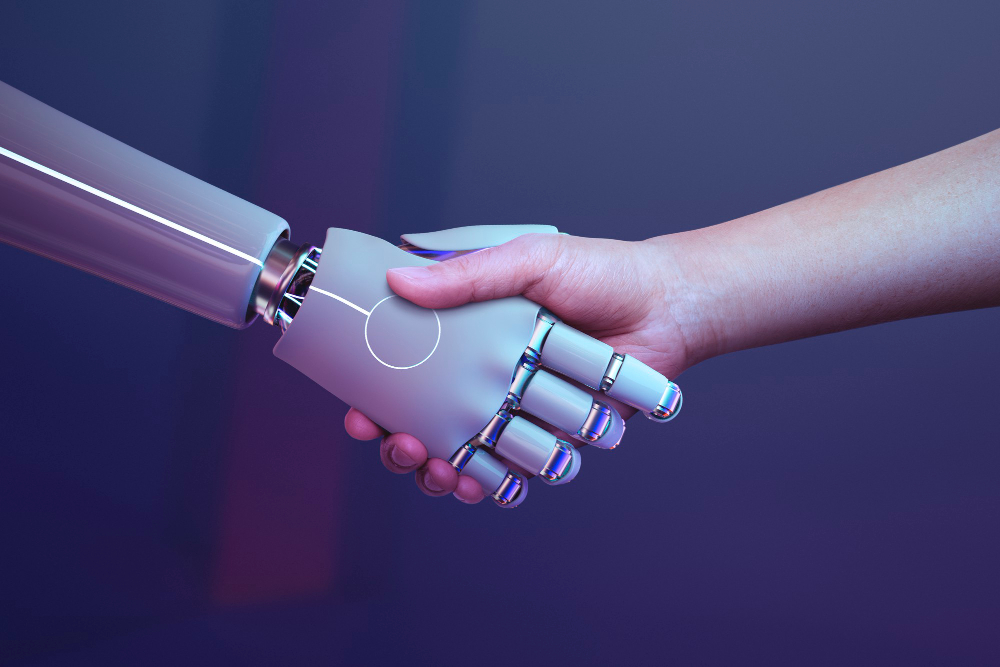The Rise of Artificial Intelligence: Transforming the Future

The Rise of Artificial Intelligence: Transforming the Future
Artificial Intelligence (AI) has moved from being a futuristic concept to a technology that is profoundly impacting everyday life. From virtual assistants like Siri and Alexa to the complex algorithms driving self-driving cars, AI is revolutionizing industries, enhancing human capabilities, and opening doors to possibilities once thought to exist only in science fiction.
In this article, we’ll explore what artificial intelligence is, its various types, how it's transforming industries, and the ethical considerations that come with it.
What is Artificial Intelligence?
At its core, artificial intelligence refers to the development of computer systems capable of performing tasks that typically require human intelligence. These tasks range from simple ones, such as recognizing speech and making decisions, to more complex actions like visual perception and understanding natural language.
AI can be divided into two main categories:
-
Narrow AI (Weak AI): This type of AI is designed to perform a specific task, like facial recognition or language translation. It operates within a narrow context, excelling in a single domain but lacking general intelligence. Examples include virtual assistants, recommendation algorithms on platforms like Netflix, or self-driving car technology.
-
General AI (Strong AI): General AI represents a form of intelligence that can understand, learn, and apply knowledge across a wide range of tasks, similar to human capabilities. While it remains a theoretical concept, it would have the ability to perform any intellectual task that a human can. Achieving general AI is a long-term goal for researchers and scientists.
The Transformational Impact of AI Across Industries
AI is disrupting and transforming industries across the globe, offering new efficiencies and unlocking previously unimaginable potential.
-
Healthcare: AI is revolutionizing healthcare by improving diagnostics, predicting patient outcomes, and personalizing treatment plans. Machine learning algorithms analyze vast amounts of medical data to identify patterns, enabling early diagnosis of diseases like cancer. Robotic-assisted surgeries and AI-powered virtual healthcare assistants are also advancing patient care.
-
Finance: In the finance sector, AI is playing a significant role in fraud detection, algorithmic trading, and personalized banking experiences. Machine learning algorithms analyze massive datasets to detect anomalies and patterns, enabling financial institutions to make faster and more accurate decisions.
-
Manufacturing: AI is driving automation in manufacturing, leading to smarter factories with predictive maintenance, quality control, and supply chain optimization. AI-powered robots can work alongside humans, increasing productivity and reducing errors in production lines.
-
Retail: AI is transforming the retail landscape by optimizing inventory management, enhancing customer service, and delivering personalized shopping experiences. Retailers use AI-driven recommendation engines to predict consumer preferences and suggest products tailored to individual needs.
-
Education: AI has the potential to transform education by personalizing learning experiences. AI-powered tutoring systems can adapt to the learning style and pace of individual students, offering tailored support and feedback. Moreover, AI can help educators by automating administrative tasks, giving them more time to focus on teaching.
-
Transportation: AI is at the core of the autonomous vehicle revolution. Self-driving cars use AI systems to process vast amounts of data from sensors, cameras, and radar to make real-time decisions on the road. AI also powers route optimization for logistics and delivery companies, reducing fuel consumption and improving efficiency.
Ethical Considerations of Artificial Intelligence
While AI brings numerous benefits, it also raises significant ethical questions. As AI technology continues to evolve, it’s crucial to address the following considerations:
-
Bias and Fairness: AI systems learn from data, and if that data contains bias, the AI models may perpetuate or even amplify these biases. This is particularly concerning in areas such as hiring algorithms, criminal justice systems, and healthcare, where biased AI decisions can lead to unfair outcomes.
-
Job Displacement: Automation through AI has the potential to replace many jobs, particularly those that involve repetitive tasks. While AI will also create new jobs in fields such as AI development and maintenance, the transition period may leave many workers displaced, requiring reskilling.
-
Privacy Concerns: AI systems often rely on collecting large amounts of personal data to function effectively, raising concerns about privacy and data security. The balance between using AI for beneficial purposes and protecting individual privacy must be carefully managed.
-
Autonomous Decision-Making: As AI systems become more autonomous, questions about accountability and responsibility arise. For example, in the case of self-driving cars or autonomous weapons, it is unclear who should be held accountable for errors or accidents caused by AI decisions.
-
AI and Ethics in Warfare: AI’s use in military applications has sparked debate about the ethics of autonomous weapons. The idea of machines making life-and-death decisions without human intervention raises serious moral concerns about the implications of such technologies in warfare.
The Future of Artificial Intelligence
The future of AIs promises continued advancements in fields such as natural language processing, robotics, and neural networks. Innovations like quantum computing may exponentially increase AI's capabilities, allowing machines to solve complex problems at unprecedented speeds.
In the coming years, AI will likely integrate even further into our lives, creating a more seamless interaction between humans and machines. However, as the influence of AI grows, so does the responsibility to ensure that its development aligns with societal values and ethical principles.





